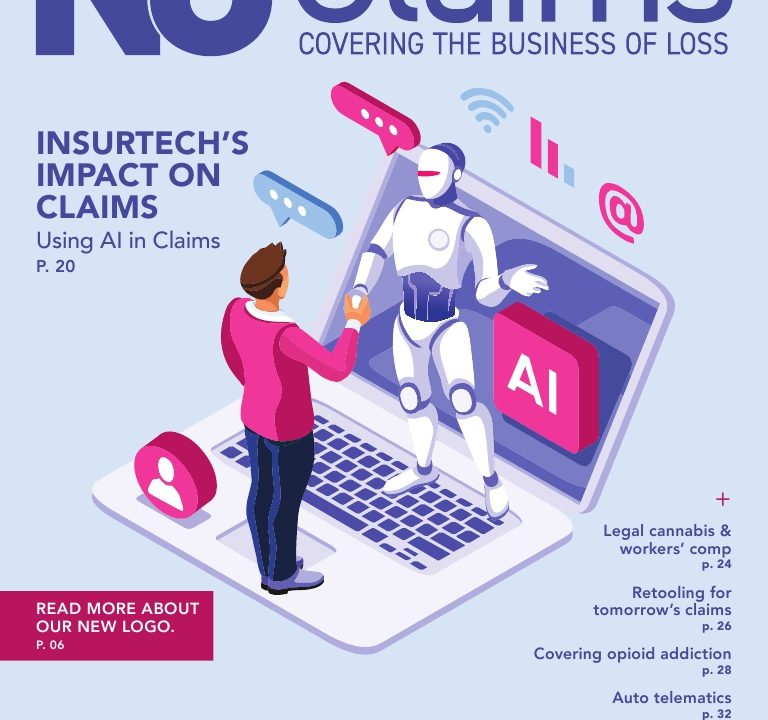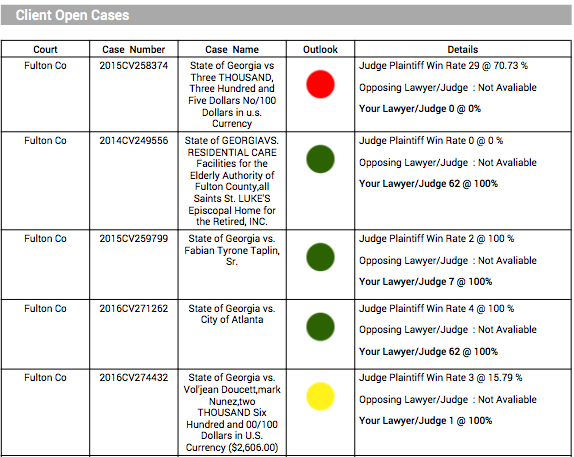Why is the Legal Industry Ripe for Disruption?
Why is the Legal Industry Ripe for Disruption?

Almost no other industry has been so slow to respond to the technological revolution as the legal industry. There are many purported reasons for this, not the least of which is that lawyers and law firms have traditionally had powerful incentives to resist new technology. As just one example, the entire notion of the billable hour means that efficiency for a lawyer is not always a lucrative proposition. Getting work done faster means there is less money to be made, especially if there is a finite amount of work to go around.
In addition, the obscure nature of legal work, with its proprietary jargon and finicky rules, has made it difficult for non-lawyers to do frank assessments of law firm inefficiencies. There is no doubt that this has contributed to the tech lag that the legal industry has experienced over the past several decades. At long last, though, it seems that there are signs that lawyers and law firms are poised to transform the way that legal work is done. To suss out the reasons behind this anticipated change, we’ve asked 11 legal industry experts to answer the following question: Why is the Legal Industry Ripe for Disruption?
1. Nellie Akalp, CEO of CorpNet.com
The legal industry can seem pretty ‘stone age’ sometimes when referring to laws and legal jargon. Attorneys who utilize that law on a daily basis sometimes have the same ‘stoneage’ mindset where they are not open to much change. I believe though, that the legal industry is ready for new products and services to make attorneys’ work more streamlined and their lives easier. They can still get in those billable hours, but utilizing outside services, such as our Partner Program, allow them to bring in additional revenue but skip the stress of doing more work. We all want to work less for more – and our Partner Program and more services will be disrupting the legal scene to allow that to happen.
2. Haley Altman, CEO and founder of Doxly, Inc
In today’s world, everyone expects instant accessibility and the conveniences that technology can provide. Every day people are booking flights, checking in for flights and managing most of their accounts from their mobile devices. Traditional legal practice methods are becoming outdated compared to other industries, and they do not meet the client’s expectations. Not only have clients accepted the technological advancements available today, they now expect these conveniences when working with law firms. Boosting client satisfaction levels through the use of legal technology can allow law firms to deliver increased efficiency, and more value for their client’s money, which ultimately provides real value to their clients.
3. Chelsey Langan, Vice President, Sales, Martindale-Nolo
We predict that attorneys will remain critical for more complex cases, but that consumers will seek more cost-effective means for handling simple legal matters. Online services, such as Nolo’s WillMaker, have made it simple for customers to handle certain legal matters with little cost.
At the same time, many attorneys in the U.S. need more efficient processes for sourcing business, managing case intake, and communicating with clients. Disruptive technology for law firms includes online lead generation services to complement old-fashioned client referrals, contact relationship management (CRM) systems to help manage leads and case management and online portals for offering more transparency to consumers on case status.
4. Kevin L. Miller, CEO of LegalSifter
Because the demand for legal services is largely unmet, the world is waking up to the potential of artificial intelligence, and because entrepreneurial attorneys see the possibilities.
Combine that with an unprecedented, accelerating amount of investment into promising legal tech companies, and you have the right ingredients for an explosion of new legal products that change the nature of the industry. The good news is that everyone will win – attorneys, clients, and suppliers.
5. Nicholas d’Adhemar, Founder and CEO at Apperio
Fierce competition and increased client demands have led to the legal industry to be ripe for disruption. Many of the manual, inefficient ways of working are no longer an option if firms want to keep their clients happy. By using the transformative technology available today, they can create more sophisticated services as well as more efficient turnaround of projects.Transparency tools, such as Apperio, give clients intelligent analytics to optimise their spend and identify areas for improved efficiency as well as secure the best deal among competing firms.Also, there are many customers who cannot afford the main legal services on offer today and would prefer a more cost-effective solution with more basic advice. With this trend, you start to see new legal firms on the market with prices directed at this market.
6. Dan Garrett, CEO and Co-Founder of Farewill
Because it doesn’t often act in the interests of the consumer, and that’s not good enough anymore. People don’t need – or want – to pay by the hour, and they can access personalised services, and information, online. The era of the lawyer as knowledge holder and gatekeeper is coming to an end. We’ve seen the same in finance: just because you’re operating in an area that consumers find unsavoury, doesn’t mean you should take them for a ride. We have an opportunity to transform the parts of life people find it difficult to deal with by building products and services that make things easier, not harder.
7. Toby Unwin, Co-Founder and CIO of Premonition
The legal industry is ripe for disruption because it is opaque and highly inefficient. Hourly billing means that the more efficient a lawyer is, the less money they actually make. This has led to a system that is vague, expensive, inefficient and massively hated by its customers. The repetitive, rule-based nature of legal work makes it an easy target for automation. Law firms have had little incentive to adopt new tools and actively dissuade their adoption. The most successful legal tech companies practically ignore law firms, focussing instead on their clients, particularly insurers. These companies have a strong incentive to see legal services be benchmarked, transparent and efficient. A centuries-old dam is beginning to crack…
8. Neal Nagely, CEO of BookLawyer
I believe the legal industry is more ripe for evolution than for disruption.
As technology continues to transform expectations for personal and commercial interactions in our daily lives, new and existing providers of legal services will use technology to provide superior legal services and create a competitive advantage.
9. Dan Kalish, Managing Partner at HKM Employment Attorneys LLP
Law is one of the fields that, so far, has not been heavily disrupted compared to other fields such as real estate agents or travel agencies.
But the disruption is coming primarily due to the amount of legal tasks that can be automated the amount of electronic documents that can be searched so quickly with computers and AI.
10. Dean Sperling of Dean Sperling Law in Irvine, California
The legal industry is already in disruption. The last recession “weeded” out many firms whose business structure could not withstand the pressures brought by the downturn, loss of business and the increased competition. Clients, including large multinational entities, have found that there is competition in the legal arena and fees charged and have demanded change. Much as how the “first wave” of technology leveled the playing field between large and small firms, the next wave is going to shape who survives, who doesn’t and who prospers. The clients are driving the changes and technology is going to be the engine that will allow lawyers to provide what the clients demand.
11. Gustavo Mayen Esq. / MBA
The legal industry is ripe for disruptions because we attorneys are creatures of habit. Because of this, established firms and more experienced lawyers tend to rely on what has worked all along. This creates an incentive for new firms to be able to use technology to offer services at a better rate, services that could be done faster at times, and services in which you can engage better and quicker with the client through technology. Technology also allows you to disrupt the industry because marketing can be more individualized to your target market through analytics. It allows you be seen as an expert in the field by providing blogs, YouTube videos or other media to educate the public at large. Technology also allows you to, as a business, cut down on items that are non-billable, thus cutting out the fat of the business, making it more of a lean business, thus being able to have better margins at the end.
Originally published, MARCH 15, 2018 Author, JNANA SETTLE
Jnana Settle
Ma Jnana Settle is a Texas-licensed attorney who was born and raised on the island of Maui, Hawaii. Since graduating from law school at Southern Methodist University’s Dedman School of Law in 2016, she has pursued two careers simultaneously. As a lawyer, her law firm is situated in Wylie, Texas, a suburb of Dallas. She practices in the areas of real estate, estate planning, and small business law. In addition, she is a prolific legal content writer and avid legal tech nerd. Her articles have been published by the State Bar of Texas and the American Bar Association, in addition to her articles on Disruptor Daily. She ghostwrites legal content for other lawyers that ends up as blogs, legal articles, and continuing legal education programs throughout the U.S. She can be reached at [email protected]

 The legal industry can seem pretty ‘stone age’ sometimes when referring to laws and legal jargon. Attorneys who utilize that law on a daily basis sometimes have the same ‘stoneage’ mindset where they are not open to much change. I believe though, that the legal industry is ready for new products and services to make attorneys’ work more streamlined and their lives easier. They can still get in those billable hours, but utilizing outside services, such as our Partner Program, allow them to bring in additional revenue but skip the stress of doing more work. We all want to work less for more – and our Partner Program and more services will be disrupting the legal scene to allow that to happen.
The legal industry can seem pretty ‘stone age’ sometimes when referring to laws and legal jargon. Attorneys who utilize that law on a daily basis sometimes have the same ‘stoneage’ mindset where they are not open to much change. I believe though, that the legal industry is ready for new products and services to make attorneys’ work more streamlined and their lives easier. They can still get in those billable hours, but utilizing outside services, such as our Partner Program, allow them to bring in additional revenue but skip the stress of doing more work. We all want to work less for more – and our Partner Program and more services will be disrupting the legal scene to allow that to happen. In today’s world, everyone expects instant accessibility and the conveniences that technology can provide. Every day people are booking flights, checking in for flights and managing most of their accounts from their mobile devices. Traditional legal practice methods are becoming outdated compared to other industries, and they do not meet the client’s expectations. Not only have clients accepted the technological advancements available today, they now expect these conveniences when working with law firms. Boosting client satisfaction levels through the use of legal technology can allow law firms to deliver increased efficiency, and more value for their client’s money, which ultimately provides real value to their clients.
In today’s world, everyone expects instant accessibility and the conveniences that technology can provide. Every day people are booking flights, checking in for flights and managing most of their accounts from their mobile devices. Traditional legal practice methods are becoming outdated compared to other industries, and they do not meet the client’s expectations. Not only have clients accepted the technological advancements available today, they now expect these conveniences when working with law firms. Boosting client satisfaction levels through the use of legal technology can allow law firms to deliver increased efficiency, and more value for their client’s money, which ultimately provides real value to their clients. We predict that attorneys will remain critical for more complex cases, but that consumers will seek more cost-effective means for handling simple legal matters. Online services, such as Nolo’s WillMaker, have made it simple for customers to handle certain legal matters with little cost.
We predict that attorneys will remain critical for more complex cases, but that consumers will seek more cost-effective means for handling simple legal matters. Online services, such as Nolo’s WillMaker, have made it simple for customers to handle certain legal matters with little cost. Because the demand for legal services is largely unmet, the world is waking up to the potential of artificial intelligence, and because entrepreneurial attorneys see the possibilities.
Because the demand for legal services is largely unmet, the world is waking up to the potential of artificial intelligence, and because entrepreneurial attorneys see the possibilities.  Fierce competition and increased client demands have led to the legal industry to be ripe for disruption. Many of the manual, inefficient ways of working are no longer an option if firms want to keep their clients happy. By using the transformative technology available today, they can create more sophisticated services as well as more efficient turnaround of projects.Transparency tools, such as Apperio, give clients intelligent analytics to optimise their spend and identify areas for improved efficiency as well as secure the best deal among competing firms.Also, there are many customers who cannot afford the main legal services on offer today and would prefer a more cost-effective solution with more basic advice. With this trend, you start to see new legal firms on the market with prices directed at this market.
Fierce competition and increased client demands have led to the legal industry to be ripe for disruption. Many of the manual, inefficient ways of working are no longer an option if firms want to keep their clients happy. By using the transformative technology available today, they can create more sophisticated services as well as more efficient turnaround of projects.Transparency tools, such as Apperio, give clients intelligent analytics to optimise their spend and identify areas for improved efficiency as well as secure the best deal among competing firms.Also, there are many customers who cannot afford the main legal services on offer today and would prefer a more cost-effective solution with more basic advice. With this trend, you start to see new legal firms on the market with prices directed at this market. Because it doesn’t often act in the interests of the consumer, and that’s not good enough anymore. People don’t need – or want – to pay by the hour, and they can access personalised services, and information, online. The era of the lawyer as knowledge holder and gatekeeper is coming to an end. We’ve seen the same in finance: just because you’re operating in an area that consumers find unsavoury, doesn’t mean you should take them for a ride. We have an opportunity to transform the parts of life people find it difficult to deal with by building products and services that make things easier, not harder.
Because it doesn’t often act in the interests of the consumer, and that’s not good enough anymore. People don’t need – or want – to pay by the hour, and they can access personalised services, and information, online. The era of the lawyer as knowledge holder and gatekeeper is coming to an end. We’ve seen the same in finance: just because you’re operating in an area that consumers find unsavoury, doesn’t mean you should take them for a ride. We have an opportunity to transform the parts of life people find it difficult to deal with by building products and services that make things easier, not harder. The legal industry is ripe for disruption because it is opaque and highly inefficient. Hourly billing means that the more efficient a lawyer is, the less money they actually make. This has led to a system that is vague, expensive, inefficient and massively hated by its customers. The repetitive, rule-based nature of legal work makes it an easy target for automation. Law firms have had little incentive to adopt new tools and actively dissuade their adoption. The most successful legal tech companies practically ignore law firms, focussing instead on their clients, particularly insurers. These companies have a strong incentive to see legal services be benchmarked, transparent and efficient. A centuries-old dam is beginning to crack…
The legal industry is ripe for disruption because it is opaque and highly inefficient. Hourly billing means that the more efficient a lawyer is, the less money they actually make. This has led to a system that is vague, expensive, inefficient and massively hated by its customers. The repetitive, rule-based nature of legal work makes it an easy target for automation. Law firms have had little incentive to adopt new tools and actively dissuade their adoption. The most successful legal tech companies practically ignore law firms, focussing instead on their clients, particularly insurers. These companies have a strong incentive to see legal services be benchmarked, transparent and efficient. A centuries-old dam is beginning to crack… I believe the legal industry is more ripe for evolution than for disruption.
I believe the legal industry is more ripe for evolution than for disruption. Law is one of the fields that, so far, has not been heavily disrupted compared to other fields such as real estate agents or travel agencies.
Law is one of the fields that, so far, has not been heavily disrupted compared to other fields such as real estate agents or travel agencies.  The legal industry is already in disruption. The last recession “weeded” out many firms whose business structure could not withstand the pressures brought by the downturn, loss of business and the increased competition. Clients, including large multinational entities, have found that there is competition in the legal arena and fees charged and have demanded change. Much as how the “first wave” of technology leveled the playing field between large and small firms, the next wave is going to shape who survives, who doesn’t and who prospers. The clients are driving the changes and technology is going to be the engine that will allow lawyers to provide what the clients demand.
The legal industry is already in disruption. The last recession “weeded” out many firms whose business structure could not withstand the pressures brought by the downturn, loss of business and the increased competition. Clients, including large multinational entities, have found that there is competition in the legal arena and fees charged and have demanded change. Much as how the “first wave” of technology leveled the playing field between large and small firms, the next wave is going to shape who survives, who doesn’t and who prospers. The clients are driving the changes and technology is going to be the engine that will allow lawyers to provide what the clients demand. The legal industry is ripe for disruptions because we attorneys are creatures of habit. Because of this, established firms and more experienced lawyers tend to rely on what has worked all along. This creates an incentive for new firms to be able to use technology to offer services at a better rate, services that could be done faster at times, and services in which you can engage better and quicker with the client through technology. Technology also allows you to disrupt the industry because marketing can be more individualized to your target market through analytics. It allows you be seen as an expert in the field by providing blogs, YouTube videos or other media to educate the public at large. Technology also allows you to, as a business, cut down on items that are non-billable, thus cutting out the fat of the business, making it more of a lean business, thus being able to have better margins at the end.
The legal industry is ripe for disruptions because we attorneys are creatures of habit. Because of this, established firms and more experienced lawyers tend to rely on what has worked all along. This creates an incentive for new firms to be able to use technology to offer services at a better rate, services that could be done faster at times, and services in which you can engage better and quicker with the client through technology. Technology also allows you to disrupt the industry because marketing can be more individualized to your target market through analytics. It allows you be seen as an expert in the field by providing blogs, YouTube videos or other media to educate the public at large. Technology also allows you to, as a business, cut down on items that are non-billable, thus cutting out the fat of the business, making it more of a lean business, thus being able to have better margins at the end.




